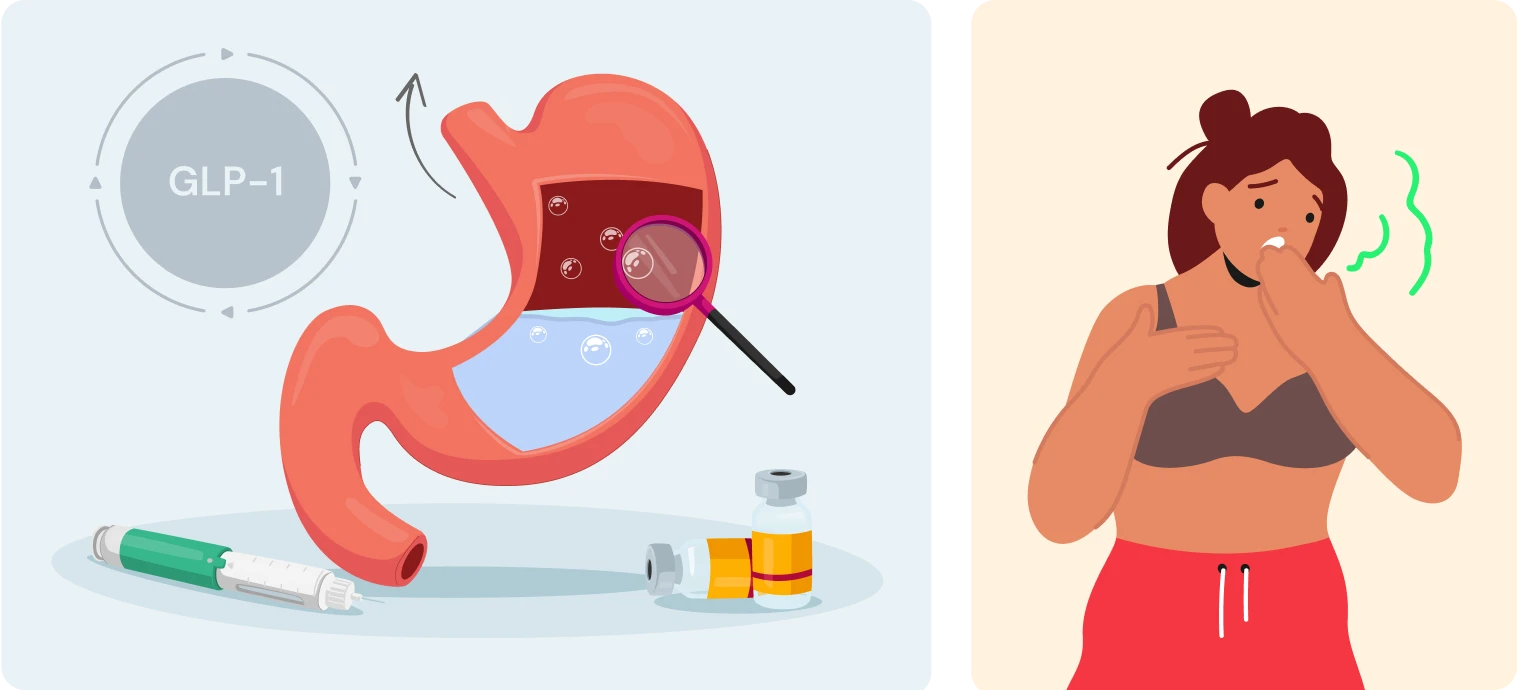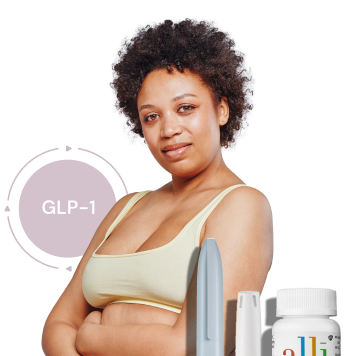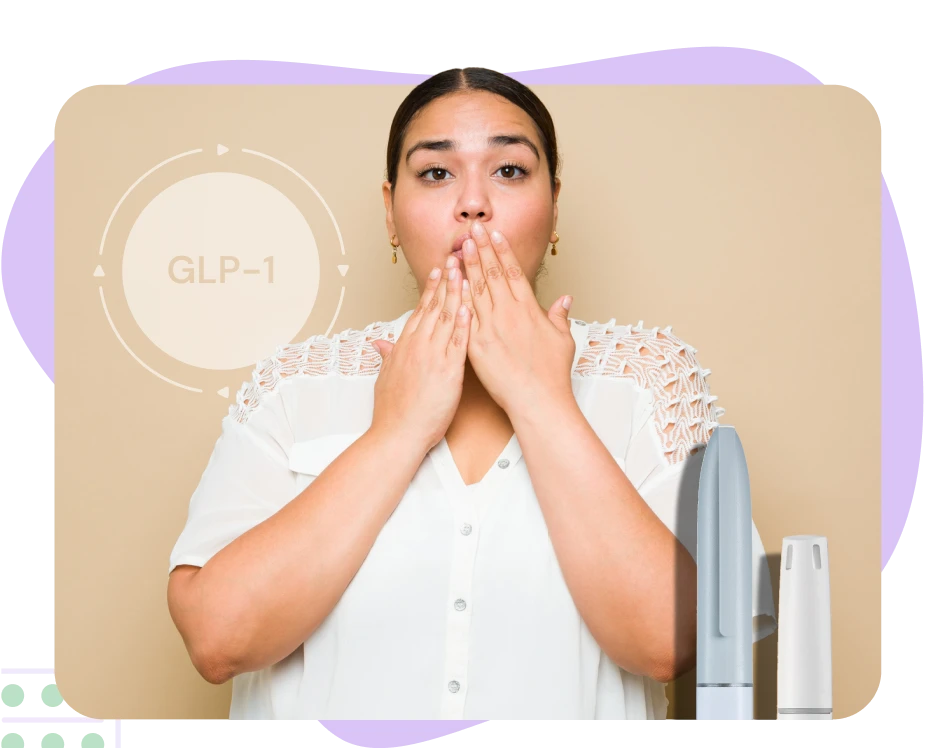Sulphur burps (also called sulphurous burps or “rotten egg” burps) are an unpleasant side effect experienced by some individuals from GLP-1 injections, such as tirzepatide, (Mounjaro) and semaglutide (Wegovy) and tirzepatide, for weight management.
These distinctive, foul-smelling burps occur when hydrogen sulphide gas is produced in the digestive system. With GLP-1 medications, this may happen due to delayed gastric emptying, which allows food to remain in the stomach longer, potentially leading to bacterial fermentation and gas production with a characteristic sulphurous odour.

What do sulphur burps feel like?
Typical symptoms inclue:
- Burps with a distinctive “rotten egg” or sulphur smell
- Unpleasant taste in the mouth
- Frequent belching
- Possible accompanying bloating or abdominal discomfort
- May be worse after consuming certain foods
- Often occurs alongside other digestive symptoms
How Common Are Sulphur Burps with GLP-1 Medicines?
Sulphur burps are not usually listed as a standalone side effect in clinical trials. However, many people taking GLP-1 injections report them, particularly in the first weeks of treatment or after increasing the dose. Like other digestive symptoms (nausea, bloating, constipation), they usually improve as the body adjusts.
Managing Sulphur Burps on GLP-1 Injections
1. Dietary Changes
- Limit sulphur-rich foods (eggs, broccoli, sprouts, garlic, onions).
- Reduce fried and fatty meals that slow digestion.
- Eat smaller, more frequent meals instead of large portions.
- Chew thoroughly to ease digestion.
2. Lifestyle Tips
- Avoid fizzy drinks and excess alcohol.
- Stay upright for at least 30 minutes after meals.
- Keep a food diary to spot personal triggers.
- Try stress-reduction strategies, as stress can impact digestion.
3. Supplements & Medicines*
- Probiotics may rebalance gut bacteria.
- Activated charcoal tablets may absorb odour-producing gas.
- Bismuth subsalicylate (Pepto-Bismol) can reduce sulphur gas.
- Dimeticone/simethicone (e.g. Wind-Settlers) helps break up gas bubbles.
*Always check with your clinician before starting new products. You can book a free consultation session with our clinicians to explore your options.
4. Timing Strategies
- Take GLP-1 injections at the recommended times. Ask your prescriber if adjusting may help.
- Space meals evenly throughout the day.
- Wait 2–3 hours after eating before lying down.
Why Choose PillSorted for Your Weight Loss Journey?
At PillSorted, we do more than dispense medication:
- Free clinical consultations with qualified clinicians
- Ongoing support throughout your treatment
- Fast, discreet delivery to your door
- Personalised care plans tailored to you
When to Seek Medical Advice
Contact your healthcare provider if you experience:
- Severe or persistent sulphur burps
- Burps affecting your daily life
- Severe abdominal pain or ongoing bloating
- Burps with fever, nausea, or vomiting
- Unexpected or unexplained weight loss
Long-term Outlook
For most people, sulphur burps are a temporary side effect that improves within a few weeks of starting GLP-1 treatment. With the right dietary and lifestyle adjustments, symptoms usually become less frequent and less disruptive.
FAQs About Sulphur Burps and GLP-1
Can sulphur burps be a sign of something serious?
Usually they’re harmless, but if they’re severe, persistent, or come with pain, fever, nausea, or weight loss, they could point to conditions like SIBO or H. pylori. Speak to a clinician or book a free consultation if concerned.
Will switching to a different GLP-1 help?
Some people tolerate Mounjaro or Wegovy differently. If symptoms are ongoing, your clinician may adjust the dose, timing, or switch medicines.
Should I stop my GLP-1 if I get sulphur burps?
No. Most cases improve with simple diet and lifestyle changes. Always consult your prescriber before stopping treatment.
Do antacids help sulphur burps?
Standard antacids rarely help. Products with simethicone (for gas) or bismuth (for odour) may be more effective.
How long do sulphur burps last?
They usually ease within 2–6 weeks as your body adjusts. If not, keep a food diary and seek advice.
Key Takeaway
Sulphur burps on GLP-1 injections are common but usually short-lived. With the right management, they rarely require stopping treatment. If your symptoms persist or worry you, PillSorted’s clinicians are here to help.































